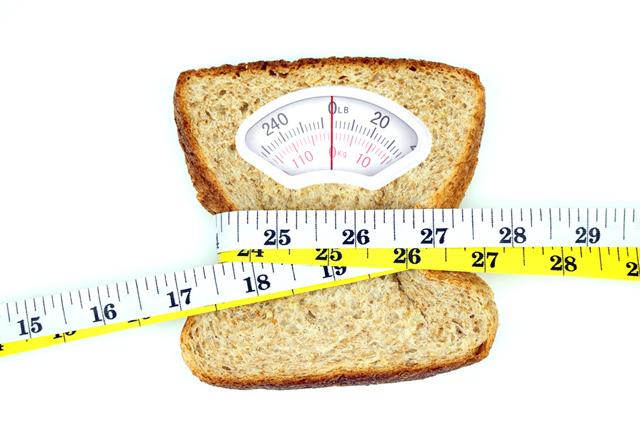You are here
Cutting carbohydrates keeps weight off
By Chicago Tribune (TNS) - Nov 19,2018 - Last updated at Nov 19,2018

Photo courtesy of swopfit.com
In a study of overweight people maintaining weight loss, those on a low-carbohydrate diet burned about 250 more calories per day than those on a high-carbohydrate diet.
The study of 164 people, published on Wednesday by The BMJ medical journal, notes the challenge of maintaining weight loss in the face of the resulting hunger and metabolism slowdown, and says that the calorie-burning effect of a low-carb diet “may improve the success of obesity treatment”.
“These findings show that all calories are not alike to the body, and that restricting carbohydrates may be a better strategy for long-term weight loss than restricting calories,” said study co-author Dr David Ludwig, co-director of the New Balance Foundation Obesity Prevention Centre at Boston Children’s Hospital.
The study addresses one of the most vexing problems in weight loss: As the weight comes off, the body fights back, burning fewer calories and bombarding us with hunger signals.
“It is a recipe for failure,” Ludwig said.
It is also something of a mystery: Why does the body react as if it is starving when it clearly is not? For some researchers, including Ludwig, the answer lies in the carbohydrate-insulin model, the theory that processed carbohydrates such as white bread trigger hormonal changes that lead to hunger, metabolic slowdown and weight gain.
Processed carbohydrates digest quickly into sugar, raising insulin levels, Ludwig said. Insulin, in turn, programs fat cells to store excess calories. When calories are locked up in fat cells, the brain cannot perceive them and thinks the body needs more food.
The authors of the study collaborated with Framingham State University, where 164 overweight people — students, staff, faculty and community members — agreed to eat only study-supplied food. First, study participants lost about 12 per cent of their body weight, roughly 9 to 11 kilogrammes for the average participant.
“We know that’s going to stress their metabolism,” Ludwig said.
Then for the 20-week test phase, study participants were randomly placed in three groups: those who ate diets composed of 20 per cent carbohydrates, 40 per cent or 60 per cent. Each diet contained 20 per cent protein, with the remaining portion composed of fat. Diets used healthy foods and were as similar as possible, Ludwig said. The goal at this stage was to maintain the weight loss, not to lose any more weight.
Those on the low-carb diet burned 209 to 278 more calories per day than those on the high-carb diet, a difference that would lead to an estimated 10-kilogrammes weight loss over three years if researchers were not intervening to maintain weight.
And the effect was even larger for those who produced high levels of insulin in response to carbohydrates; they burned 308 to 478 more calories a day on the low-carb diet than they did on the high-carb diet.
How do you know if you are a high insulin secreter? “Look in the mirror,” Ludwig advised. “If your fat distribution is predominantly around the midsection — so you are more like an apple than a pear — you’re more likely to be a high insulin secreter.”
Physical activity levels were very similar for the three diet groups before the study began, Ludwig said.
The researchers encouraged all participants to maintain their usual level of physical activity, which was monitored. During the study, the low-carb group showed a tendency toward more moderate-vigorous physical activity, perhaps as a result of the diet, Ludwig said via e-mail. But he emphasised that exercise was only a minor component of the total effect on calories burned.
A co-author of a 2015 PloS One journal article comparing low-fat and low-carb diets praised the precision and design of the new study, including the direct calculation of energy expenditure, which is difficult and labour intensive.
“I think they brought a level of sophistication that you don’t tend to see in these kinds of trials,” said Dr Jonathan Sackner-Bernstein, a former Food and Drug Administration associate centre director for technology and innovation who does consulting for drug and device companies.
Sackner-Bernstein said the study reinforced his belief that the more sensitive you are to carbohydrates, in terms of your insulin response, the more important it is to be on a carbohydrate-restricted diet.
Ludwig said the study’s findings are very close to what the authors predicted, but more work needs to be done.
“This is one study, so the findings need to be replicated and examined in a broader population — although we did have quite a demographic variety in our participants,” he said. “We need to see how this effect might play out in other studies, how other populations would respond.”
Related Articles
MIAMI — Common dieting advice urges people to either eat fewer carbohydrates or less fat in order to shed weight.
PARIS — A health study came to the defence of certain dietary fats on Tuesday, adding fuel to a scientific row over low-fat guidelines that
Is a sluggish metabolism keeping you from losing weight or increasing your risk of illness?



















